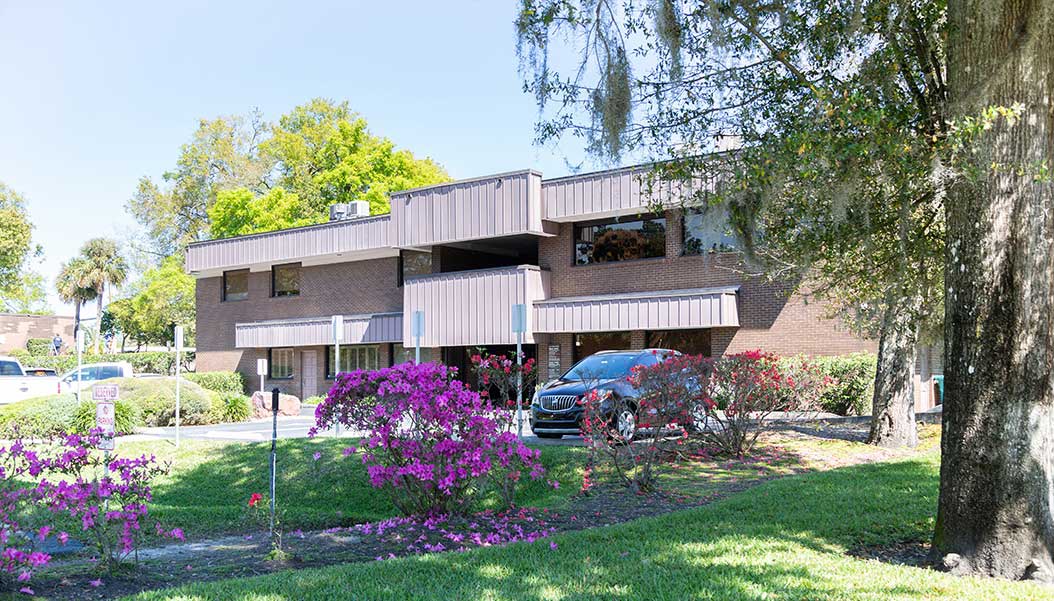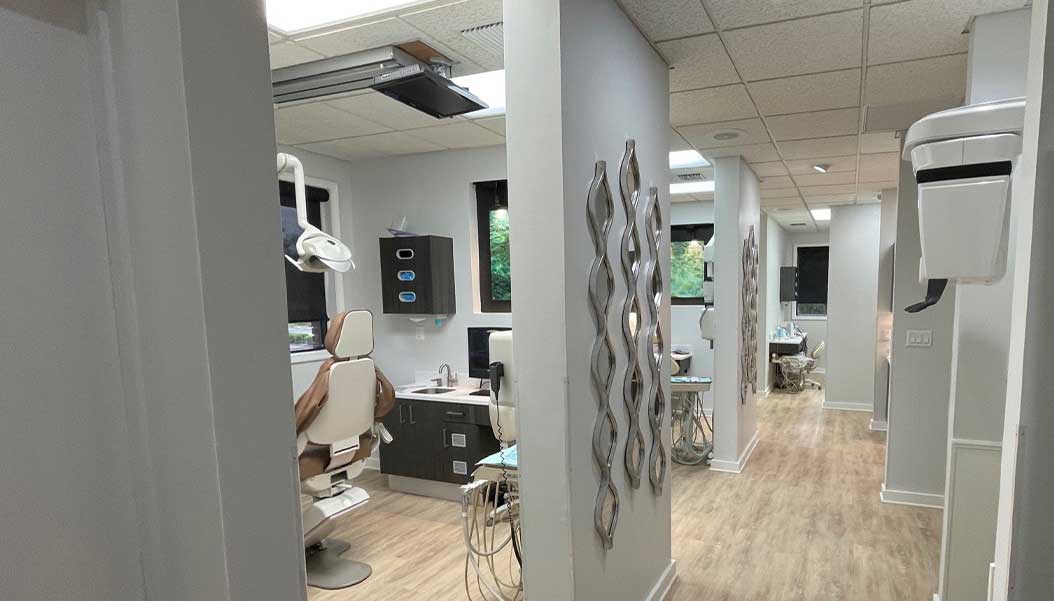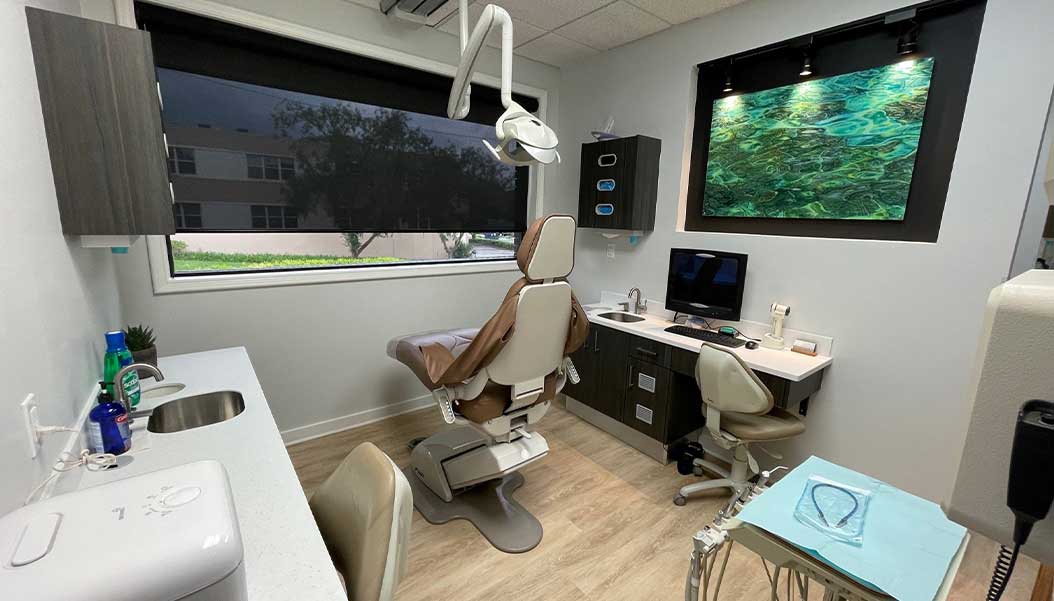Fast, Pain-Relieving Emergency Dental Care
It can happen in an instant – suddenly, you or a loved one has a badly damaged tooth or severe dental pain. First, try to stay as calm as possible and contact us right away for assistance. As an emergency dentist in Orlando with decades of experience and a reassuring chairside manner, Dr. Russo has treated countless patients in every kind of emergency. Rest assured that we’ll do everything we can to see you as soon as possible, get you out of pain, and restore your smile to its original state with emergency dentistry in Orlando, FL. If you need fast, pain-relieving emergency dental care, don’t hesitate to give us a call!
WHY CHOOSE DR. JOHN E. RUSSO, DMD FOR EMERGENCY DENTAL CARE?

Painless Anesthesia Delivery with The Wand

Same-Day Emergency Appointments Available

Our team will assist you to file for dental insurance

What to Expect During Your Emergency Dental Visit
As your emergency dentist in Orlando, our priority is getting you out of pain while also preserving your long-term oral health. Give us a call as soon as you can so we can schedule you for a same-day emergency appointment. Once you arrive, here’s what you can expect during your emergency visit:
- A visual exam – We do everything we can to see emergency patients the same day they call. Dr. Russo will see you right away when you reach our office. He’ll ask about your symptoms, look at your teeth and gums, and get a general idea of what needs to be done first.
- X-rays and other images – As needed, we’ll take images and X-rays to see what’s happening under your existing dental work, in your jawbone, and around the roots of your teeth. This will help us determine the source and extent of your emergency.
- Diagnosis and treatment – Lastly, Dr. Russo will give you a diagnosis and discuss your treatment options. Whenever possible, he’ll give you more than one possibility, discussing the pros, cons, and price differences of each. He’ll relieve your pain and repair your teeth as quickly as possible and schedule additional treatment as necessary.
The Most Common Dental Emergencies
Whether you’ve had a sudden injury or an ongoing dental problem that has flared up, like a toothache, Dr. Russo can quickly get your oral health back on track. Even if you are unsure if your situation requires urgent attention, we encourage you to give us a call anyway. We’ll help you assess your situation over the phone and determine if you need same-day treatment. After calling us to schedule the first available appointment, take the following steps to manage the situation until we can see you.
Toothaches
Toothaches
Is My Toothache a Dental Emergency?
Tooth pain can have any number of causes, and while some are relatively harmless – such as a piece of food that got stuck in your smile – it’s better to err on the side of treating it like a potential emergency, especially if the pain is severe, lasts more than a day, or is accompanied by symptoms like swelling, fever, or fatigue. More often than not, a toothache is the result of tooth decay or infection, and quick action is needed if you want to stop your pain while also giving us the best chance of saving your tooth.
How You Should Handle a Toothache:
First, floss around the tooth to remove all food debris. Sometimes this is all it takes to stop the pain. If this doesn’t work, make an emergency appointment immediately. While waiting, you can take an over-the-counter painkiller and use a cold compress to keep your discomfort under control.
How We Treat Toothaches:
We need to figure out what caused your tooth pain in the first place before we can suggest any kind of treatment. Possible solutions include fillings, root canal therapy, nightguards to protect the teeth from bruxism, and tooth extractions. When we do recommend a treatment, we’ll make sure that you understand why it’s being recommended.
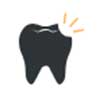
Chipped Teeth
Chipped Teeth
Is a Chipped Tooth a Dental Emergency?
: A chipped tooth isn’t quite as serious as a cracked tooth. You can usually wait a few days before having the tooth checked, but you don’t want to ignore it for too long; we need to see how serious the damage actually is and make sure that there isn’t a risk of infection.
How You Should Handle a Chipped Tooth:
Sometimes the part of the tooth that chips off can be saved, so find and store it if you can. Then rinse your mouth with water to chase away any bacteria that might be lingering near the damaged area. You can protect the rest of your mouth by covering the sharp edges of the tooth with sugarless gum or dental wax.
How We Treat Chipped Teeth:
Repairing a chipped tooth is a relatively simple matter. We can apply a small amount of filling material to the chipped area, then blend it so that it appears as if the tooth was never damaged at all. If there were multiple chips, you might want to consider getting dental veneers to hide them all.

Cracked Tooth
Cracked Tooth
Is a Cracked Tooth a Dental Emergency?
: The short answer is yes; a cracked tooth should always be treated like an emergency. Even if it is a small crack that isn’t causing you any pain, the damage could run deeper than you can see, and it might have left the inside of the tooth exposed to harmful bacteria.
How You Should Handle a Cracked Tooth:
Gather any pieces of the tooth that have broken off and save them if you can. Rinse your mouth with water, then cover any sharp or rough edges with dental wax or sugarless gum. If the area around the cracked tooth is swollen, hold a cold compress over it.
How We Treat Cracked Teeth:
The traditional way to repair a cracked tooth is with a dental crown, although sometimes a filling can be used for more minor damage. We will only recommend having the tooth removed and replaced altogether if the damage is so bad that repairs are no longer possible.
Learn More About Tooth-Colored Fillings
Learn More About Dental Crowns
Learn More About Tooth Extractions
Learn More About Dental Implants

Sensitivity to Hot & Cold
Very Sensitive Teeth
Are Very Sensitive Teeth a Dental Emergency?
Tooth sensitivity to hot, cold, or sugary substances can be alarming and make eating or drinking more of a challenge. This symptom could indicate that your teeth’s enamel has been compromised, and decay has started to set in. However, it is not necessarily a dental emergency all the time. Sometimes, teeth can feel sensitive because of wear and tear without the presence of decay. The only way to know which is true in your case is to have Dr. Russo take a look!
How You Should Handle Very Sensitive Teeth
As soon as you feel tooth sensitivity, monitor when it is triggered. Is it only when you have sugary foods or drinks? Is it getting worse over time? Paying attention and looking for patterns or trends, you can possibly see whether the issue merits an emergency visit or can wait until your next checkup/cleaning appointment.
How We Treat Very Sensitive Teeth
Treatment for this issue will vary depending on the cause. For decay, we’ll remove the affected tooth structure and replace it likely with tooth-colored fillings, but dental crowns may be necessary.
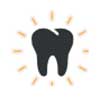
Knocked-Out Tooth
Knocked-Out Tooth
Is My Knocked-Out Tooth a Dental Emergency?
When a tooth is knocked out from an injury, it is definitely considered an emergency situation. You have a very limited time that the tooth can successfully be re-implanted, so you need to contact our office immediately if this happens to you. In fact, you should arrive within an hour of your injury for the best chances of saving the tooth. Dr. Russo will be happy to help get your smile back on track.
How You Should Handle a Knocked-Out Tooth
When you pick up the tooth or touch it in any way, do not contaminate the root portion. Always handle the tooth by the crown or the part that is usually visible above the gumline. Gently rinse the tooth with clean water, and then try to place it back where it belongs. If you find this too difficult, you may put the tooth in some milk or hold it in between your lips and gums to keep it moist until you come in for your emergency appointment.
How We Treat Knocked-Out Teeth
If you have not already done so yourself, Dr. Russo will reposition the tooth within your arch. Then, he will use an oral appliance called a splint to secure it while the connective tissues heal. If we are unable to save your tooth, we can then go over your replacement choices, namely a bridge or implant.

Lost Filling or Crown
Lost Filling or Crown
Is a Lost Filling or Crown a Dental Emergency?
Unfortunately, restorations do not last forever. Whether from damage or just over time, they can come out. Without a filling or crown to protect your tooth, it is more vulnerable to decay, which is why this situation needs to be handled immediately. Plus, it can be uncomfortable to have an exposed tooth!
How You Should Handle a Lost Filling or Crown
If you can find it, rinse the filling or crown off with clean water. Put a small amount of toothpaste onto the restoration and then stick it back on the tooth. This should hold it in place for a short period of time. Otherwise, you can cover the tooth with sugar-free gum or dental wax to temporarily protect the tooth from bacteria.
How We Treat Lost Fillings or Crowns
Although there are some exceptions where the restoration can be reattached, many times when a filling or crown comes off, it needs to be replaced because of damage or wear. If this is the case for your restoration, we can provide a new one customized for your needs now.

Broken Denture
Broken Denture
Is my broken denture a dental emergency?
Yes, a broken denture in Orlando is a dental emergency that requires seeing a dentist right away.
How you should handle a broken denture:
When faced with a broken denture, you’ll want to avoid putting it back into your mouth. This can cause damage to your teeth and gums, resulting in further injury to your mouth.
How we treat broken dentures:
The most common way to replace a broken denture is to simply replace it with a new one. However, if you’d rather look at your other options, which include dental bridges and dental implants, we’ll be happy to discuss these with you during your visit.
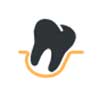
Loose Tooth
Loose Permanent Tooth
Is a loose permanent tooth a dental emergency?
Yes, a loose tooth in Orlando is a serious dental injury that should be treated immediately. Adults should not have loose permanent teeth. Children whose permanent teeth are fully erupted should also seek immediate attention if this happens.
How you should handle loose permanent teeth:
While at home waiting for your appointment, avoid touching the tooth to prevent it from falling out of its socket. Instead, don’t chew on that side of your mouth, and take an over-the-counter pain reliever if you feel any discomfort. Also, be careful when cleaning around the particular tooth.
How we treat loose permanent teeth:
Our dental team will immediately capture diagnostic images to determine the cause of your loose permanent tooth. If the culprit is gum disease, we’ll need to administer periodontal therapy quickly to eliminate the bacteria and improve your gum health. We may also need to recommend a bone graft to increase density within the jawbone. However, if an infection is present and causing serious damage to the tooth, root, and bone, we may need to extract it and discuss the option for a dental bridge or dental implant to remove the tooth.

Gums, Lips or Tongue Injury
Injury to the Gums, Lips, or Tongue
Is an injury to the gums, lips, or tongue a dental emergency?
No, a soft tissue injury is not typically a dental emergency; however, you are always welcome to come in and see us if you’re in any pain or unsure if any serious damage has occurred. Typically, these injuries heal on their own.
How you should handle an injury to the gums, lips, or tongue:
The only reason you should seek emergency medical attention at your local ER is if you cannot stop the bleeding after 10 minutes. Otherwise, place gauze on the wounded area and hold until the bleeding stops. You can then use a cold compress to minimize swelling and discomfort.
How we treat injuries to the gums, lips, or tongue:
If we do see you for your soft tissue injury, we will determine if stitches are necessary before discussing the reason for your dental accident. If caused by physical, contact sports, you may need to look into a customized sportsguard to better protect your mouth.
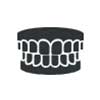
Jaw Pain or Clenching
Jaw Pain
Is jaw pain a dental emergency?
Yes, chronic jaw pain can be a serious problem if left untreated. It can arise for many reasons, which is why it’s important that you see your dentist sooner rather than later for treatment.
How you should handle jaw pain:
Until you’re able to see us for an appointment, make sure to avoid chewing or biting down on anything hard, as this will only cause more discomfort. Also, stay away from bad habits that apply more pressure to your jaw joints.
How we treat jaw pain:
To treat your jaw pain, we must first identify the underlying cause. If you’re prone to grinding your teeth, you may need a customized nightguard to safeguard your pearly whites and keep them from touching throughout the night. If it’s caused by TMJ, you’ll likely need an occlusal splint to help relieve the pressure and pain put on your jaw joints.

Something Stuck Between Teeth
Something Stuck Between the Teeth
If you have something stuck between your teeth, it’s unlikely that you’ll require emergency dental care. All you need to do is rinse with warm water and use dental floss to remove food particles. However, if the pain is continuing to worsen, and you try to remove the object with something sharp like tweezers or a toothpick, you increase your risk of potential damage to your gums or teeth, resulting in the need to see an emergency dentist in Orlando.

Understanding the Cost of Emergency Dentistry
The cost of emergency dentistry in Orlando varies widely, depending on the situation. For example, sometimes a toothache can be treated with a simple dental filling, while other cases need a root canal and dental crown. Whenever possible, Dr. Russo will give you more than one treatment option and explain the pros and cons of each choice. Then, after we’ve created a treatment plan, we’ll give you an estimate of the cost and discuss either insurance or financing as necessary.

Every Dental Emergency is Different
A knocked-out tooth is treated differently than a minor chip. A nagging toothache requires a different type of treatment than a soft tissue laceration. The truth is that no two dental emergencies are the same, which is why it’s essential that you seek professional help sooner rather than later. Our team can conduct a thorough examination of your mouth to identify the underlying problem, allowing us to establish a personalized treatment plan and estimated costs.

Does Dental Insurance Cover Dental Emergencies?
When reviewing your dental insurance plan, you’ll find that most policies offer one emergency exam each year. The cost associated with emergency dentistry is not likely to come from the initial appointment but instead, the restorative care needed to fix the problem.
Fortunately, with dental insurance, your carrier will likely cover between 50-80% of the total cost. Depending on the type of service you need, how much of your existing annual maximum remains, and whether you’ve met your deductible, you can expect your out-of-pocket expenses to be much lower than if you are uninsured.

Other Options for Making Dental Emergencies Affordable
But even if you do not have your own dental insurance policy, there are still feasible ways to keep your expenses minimal. Dr. Russo is pleased to provide patients with easy ways to enroll in flexible financing with CareCredit or Proceed Finance. These programs make it possible to apply for a low or no-interest payment plan, keeping expenses well within budget.

Taking Care of Your Smile Can Save You Money
If you want to avoid visiting the emergency dentist in Orlando, there are ways you can reduce your risk and ultimately save money. Because many dental injuries occur as a result of poor oral hygiene, it’s imperative that you take optimal care of your teeth and gums. This means practicing good oral habits at home, continuing to see Dr. Russo every six months for dental checkups and cleanings, and seeking immediate treatment as soon as you notice a problem.
Allowing pain, inflammation, or other common symptoms to worsen in the hopes they will clear up over time will only result in increasing issues that require extensive and costly treatment.
Keys to Preventing Dental Emergencies
Although you can’t always prevent dental emergencies in Orlando, there are some steps you can take to minimize them as much as possible. Dr. Russo and our team of professionals are here to provide some quick and easy tips to help you better protect and maintain your pearly whites whether you’re playing your favorite sport, going to work, traveling on vacation, or simply enjoying time at home. If you have any questions about what else you can do to keep your teeth and gums fully intact, contact us today.

Keep Your Regular Dental Appointments
Seeing Dr. Russo every six months for a dental checkup and cleaning is one of the most effective ways to protect your smile. While it may not seem like much, the truth is that these visits can stop problems in their tracks. With early detection of tooth decay, gum disease, oral cancer, and other serious dental issues, we can prevent nagging toothaches, infections, inflammation, and the potential for tooth loss. Keeping these appointments will help your smile to remain healthy and fully intact for years to come.

Keep Brushing and Flossing
Good oral hygiene habits at home are just as important as regular dental visits. Brushing twice a day for two minutes, flossing at least once a day before bed, and rinsing with an ADA-approved mouthwash are essential to ridding your mouth of cavity-causing bacteria. With regular morning and nighttime routines, you can safeguard your teeth and gums, protecting them against common issues that often require extensive restorative care to treat.

Be Mindful What You Eat
The foods you consume not only impact your waistline, but they also help or hinder your smile. When choosing sugars and starches, not only will you notice that you feel more tired and sluggish, but your pant size will likely increase, and your teeth and gums will be significantly impacted. Cavities and gum disease are real problems, and they can result in bone and tooth loss as well as the development of serious heart, brain, and other health conditions. Swapping these foods out for healthier alternatives such as leafy greens, lean proteins, fruits and vegetables, and low-fat dairy will help you enjoy stronger teeth and gums as well as a damage-free smile.

Wear a Mouthguard to Protect Your Teeth
Whether it is playing your favorite sport or grinding your teeth at night because of bruxism, customized mouthguards are essential. These oral appliances better protect teeth from wearing down and becoming seriously damaged. They are designed to be comfortable to wear and snug enough to remain in place during the big game or throughout the night.
With a customized mouthguard, you can expect to spend less time in the emergency dental office in Orlando and more time enjoying a healthier smile.

Use Tools to Open Packages, Not Your Teeth
How many times have you reached for a package and ripped it open with your teeth? It’s more convenient than finding a tool, right? Unfortunately, this mindset will only lead to serious problems. Tooth enamel may be strong, but it’s not unbreakable, which is why you are encouraged to never use your teeth as tools. Broken, fractured, and cracked teeth are just a few of the many potential injuries that can occur. Instead, spend the few extra minutes finding the scissors, pliers, or another tool to open the package or container and leave your pearly whites alone.


Dental Emergency FAQs
Dental emergencies are stressful enough without the added uncertainty of how to handle them or what to expect from treatment. To help you have all the information you need, we’ve put together answers to several emergency FAQs below. But don’t hesitate to get in touch if you have any other questions or need an emergency dentist in Orlando. We’re always here to help!
Can I Wait to Call an Emergency Dentist?
In most cases, the sooner you call to make an appointment, the better. Generally speaking, dental pain only gets worse with time, and you also risk more serious damage to your teeth as well. A good example is waiting to have a toothache looked at that could be treated with a simple filling in the early stages. By waiting, it may need more extensive treatment like a dental crown or root canal.
Also, some emergencies are especially time-sensitive such as knocked-out teeth, which have the best chance of being saved if you’re seen within one hour. That’s why your best bet is to give us a call any time that you’re experiencing dental pain.
What’s the Best Way to Manage Dental Pain?
Applying a cold compress in 15-minute increments to your lip or cheek is helpful for reducing pain, swelling and inflammation. It’s also fine to take over-the-counter pain reliever as directed. Ibuprofen is typically very effective, but it does thin your blood (along with other NSAIDs such as aspirin and naproxen). If you currently take a blood thinner like Warfarin or have heavy bleeding, you can take Tylenol (acetaminophen) instead.
Do I Still Need to See the Dentist If My Toothache Goes Away?
Yes – it’s still very important to be seen, even if your pain subsides. A toothache is often an indication of a serious infection, especially if it’s accompanied by swelling. In some cases, the infection causes the nerve to die, which explains why the pain goes away. However, the infection is still there and can spread to critical areas of the body. If left untreated, this can eventually be life-threatening. If you have a toothache that goes away, give us a call so Dr. Russo can take a look and recommend the appropriate treatment.
Should I Visit the Emergency Room First for Dental Emergencies?
Believe it or not, most emergency rooms are not able to effectively address dental emergencies. That’s mainly because there’s usually not a dental professional on staff, and they’re the only ones able to perform emergency dental care. However, there are a few exceptions when going to your nearest ER would be the better option. Some of those include:
- Jaw fractures or dislocations
- Serious cuts or lacerations to the face or mouth
- Abscess or infection that’s swollen to the point of affecting breathing or swallowing.
Are Knocked-Out Baby Teeth a Dental Emergency?
Since baby teeth are meant to come out, you may be wondering if it’s a dental emergency if they get knocked out. If they come out prematurely, you should schedule an appointment with our team right away. We’ll ensure no damage has occurred and check for any issues. Do not try to put the tooth back into your child’s socket! You should take them to the nearest emergency room if they have uncontrollable bleeding or you think they’ve damaged their jaw.
Can Superglue Be Used to Repair Broken Dentures?
Absolutely not! Superglue is not recommended for repairing dentures because the chemicals can be toxic, causing allergic reactions in some patients. Plus, it does not do well in damp environments, which means it probably won’t last very long after it’s applied to dentures. The best way to deal with a broken denture is by calling our office and scheduling an appointment with Dr. Russo. Depending on the extent of the damage, he’ll either repair it or recommend that you get a replacement.
What Should I Keep in My Emergency Dentistry Kit?
It’s always best to be prepared for the unexpected. Since dental emergencies can strike at a moment’s notice, you should consider keeping an emergency dentistry kit with you at all times that contains the following essentials:
- Small sealable container for teeth or restorations
- Gauze pads or dressings
- Cotton balls
- Dental cement
- Denture adhesive
- Petroleum jelly
- Floss
- Ice pack
- Your emergency dentist’s contact information





